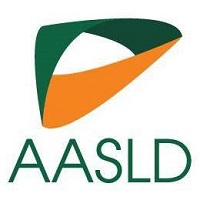 Individuals who experience a rapid undetectable viral load on a triple regimen of hepatitis C virus (HCV) medications may only need three weeks of treatment. Researchers in the proof-of-concept SODAPI study conducted a pilot, response-guided, open-label study of triple therapy involving an NS3 protease inhibitor plus dual NS5A-NS5B nucleoside inhibitors given to 26 non-cirrhotic Chinese partcipants with genotype 1b of hep C.
Individuals who experience a rapid undetectable viral load on a triple regimen of hepatitis C virus (HCV) medications may only need three weeks of treatment. Researchers in the proof-of-concept SODAPI study conducted a pilot, response-guided, open-label study of triple therapy involving an NS3 protease inhibitor plus dual NS5A-NS5B nucleoside inhibitors given to 26 non-cirrhotic Chinese partcipants with genotype 1b of hep C.
Results were presented at the Annual Meeting of the American Association for the Study of Liver Diseases (AASLD) in San Francisco.
The participants were randomized to three groups. Twelve people received Gilead Sciences’ Harvoni (ledipasvir/sofosbuvir) plus Bristol-Myers Squibb’s (BMS) experimental asunaprevir. Six people received Gilead’s Sovaldi (sofosbuvir), BMS’s Daklinza (daclatasvir) and Janssen’s Olysio (simeprevir). Eight people received Sovaldi, Daklinza and asunaprevir.
The researchers tested the participants’ viral loads at the time of their first dose, at hour 1, 2, 4, 8, 24 and 48 following that dose, and then weekly during treatment and until 12 weeks after the end of treatment. Those who achieved a viral load of less than 500 by the 48-hour mark—called a rapid virologic response, or RVR—were then set to receive only three weeks of treatment, while the others were treated for eight to 12 weeks.
Eighteen participants (69 percent), including six from each group, achieved an RVR and were treated for three weeks. The baseline viral load was lower in those who experienced an RVR compared with those who did not.
All 18 people who were treated for three weeks achieved a sustained virologic response 12 weeks after completing therapy (SVR12, considered a cure). None of them discontinued treatment or experience significant adverse side effects.

Thinkstock






Comments
Comments